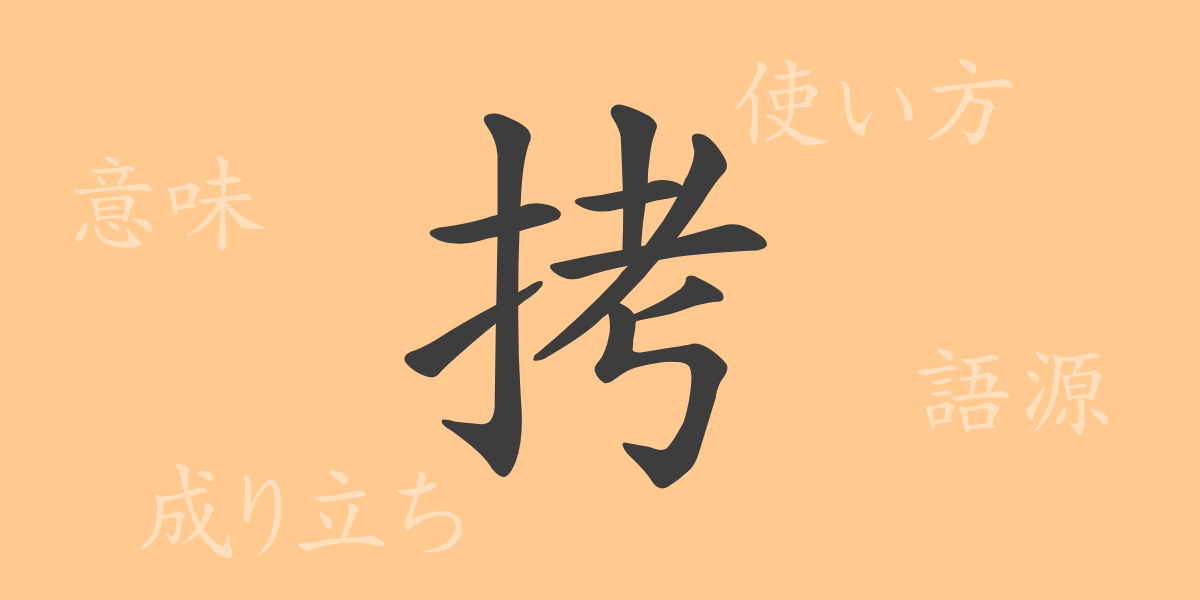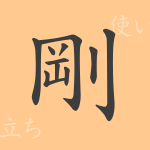The beauty of the Japanese language is brought to life through its complex and rich writing system. Kanji is one of the core elements of this system, each with its unique history and meaning. This time, we spotlight a lesser-known common kanji, “拷(ごう),” delving into its origins, meanings, uses, and related idioms and expressions.
Origins of 拷(ごう)
The kanji “拷(ごう)” originates from ancient China. This character combines the radical for “hand” (手(てへん)) with “告(こく),” symbolizing actions related to restraint and torture. Over time, this kanji came to specifically denote torture and made its way to Japan. In Japan, while the usage of this kanji is rare, it appears in specific idioms and legal contexts, leaving a lasting impression due to its strong imagery.
Meanings and Uses of 拷(ごう)
The kanji “拷(ごう)” primarily means torture or severe interrogation. This character itself is not commonly used in modern Japanese, mostly appearing in legal terms or historical contexts. For example, in criminal procedure law, there is a principle of “拷問禁止(ごうもんきんし)” (prohibition of torture), highlighting its important usage.
Readings, Stroke Count, and Radical of 拷(ごう)
Let’s look at the readings and basic information about the kanji “拷(ごう).”
- Readings: The on’yomi (音読み) is “ごう,” and it has no kun’yomi (訓読み).
- Stroke count: It has a total of 9 strokes.
- Radical: The radical is 手(てへん) (hand).
Idioms, Phrases, and Proverbs Using 拷(ごう)
Idioms and phrases that include “拷(ごう)” are used in specific contexts due to its strong connotations. Here are a few examples:
- 拷問(ごうもん): The act of inflicting physical or mental pain to extract information.
- 拷問刑(ごうもんけい): Historically, a punishment involving torture to obtain information.
- 拷訊(ごうじん): Severe interrogation, sometimes referring to intense questioning akin to torture.
These idioms and phrases are mainly used in legal or historical contexts and are rarely found in everyday conversation.
Conclusion on 拷(ごう)
Although the kanji “拷(ごう)” is infrequently used, it has played a significant role in Japan’s legal and historical contexts. Bearing meanings related to torture and interrogation, its presence underscores the power of words and a deep understanding of fundamental human rights. Through this exploration, we have shed light on the historical background and cultural importance of “拷(ごう).”

























